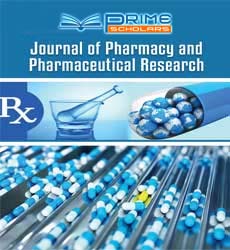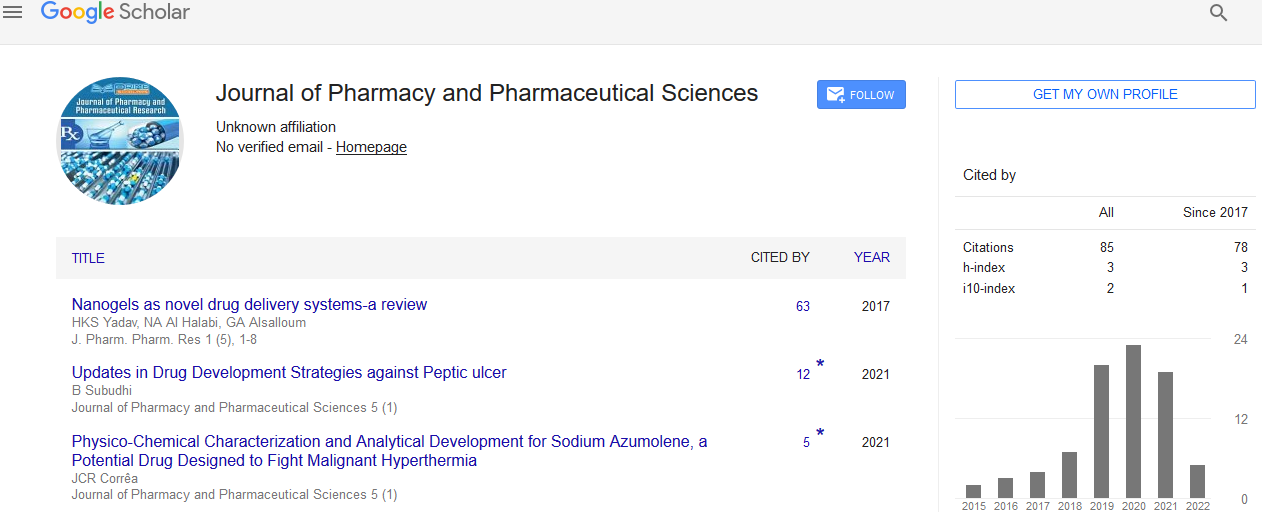Commentary - (2023) Volume 7, Issue 3
Harnessing Nature's Bounty: Medicinal Plants for Hypertension Management
Jimi Yin*
Department of Pharmacy, University of Peking, China
*Correspondence:
Jimi Yin,
Department of Pharmacy, University of Peking,
China,
Email:
Received: 29-Aug-2023, Manuscript No. IPIPR-23-18163;
Editor assigned: 31-Aug-2023, Pre QC No. IPIPR-23-18163 (PQ);
Reviewed: 14-Sep-2023, QC No. IPIPR-23-18163;
Revised: 19-Sep-2023, Manuscript No. IPIPR-23-18163 (R);
Published:
26-Sep-2023, DOI: 10.21767/ipipr.7.03.023
Description
Hypertension, commonly known as high blood pressure, is a silent
but widespread health concern affecting millions of people
worldwide. While pharmaceutical drugs are a primary means of
managing hypertension, a growing interest in holistic and natural
remedies has turned the spotlight on medicinal plants. The use
of plants for therapeutic purposes, known as phytotherapy, has
been a part of traditional medicine for centuries. In this article,
we will explore various medicinal plants that have shown promise
in helping manage hypertension, shedding light on their benefits,
safety, and the potential they hold as complementary treatments
for this pervasive condition. Hawthorn is a plant with a rich history
in traditional medicine, particularly in Europe and North America.
Its leaves, berries, and flowers are packed with antioxidants that
promote cardiovascular health. Research suggests that hawthorn
can enhance blood vessel function, reduce oxidative stress, and effectively
lower blood pressure. It is particularly beneficial for those
with mild to moderate hypertension. Known for its culinary uses,
garlic is a medicinal powerhouse. Allicin, a key compound in garlic,
has vasodilatory effects that can relax blood vessels and, as a result,
lower blood pressure. Regular consumption of garlic, whether
raw, cooked, or in supplement form, is associated with a reduction
in hypertension and the risk of cardiovascular diseases. Olive
leaf extract is derived from the leaves of the olive tree, a staple
in the Mediterranean diet. Oleuropein, a bioactive compound in
olive leaves, exhibits vasodilatory properties that relax blood vessels
and improve blood flow. Studies suggest that olive leaf extract
may help reduce both systolic and diastolic blood pressure levels,
contributing to better cardiovascular health. Turmeric, a vibrant
yellow spice commonly used in Indian cuisine, contains curcumin,
a potent anti-inflammatory and antioxidant compound.
Curcumin has shown potential in lowering blood pressure by enhancing
blood vessel function and reducing oxidative stress. While
not a standalone treatment for hypertension, incorporating turmeric
into one’s diet can support overall cardiovascular health.
Hibiscus tea, prepared from the dried petals of the hibiscus plant,
has gained attention for its potential antihypertensive effects. Rich
in antioxidants and anthocyanins, hibiscus tea has demonstrated
its ability to lower both systolic and diastolic blood pressure in various
studies. Sipping on hibiscus tea can be a flavorful and soothing
way to bolster hypertension management. Cinnamon, a beloved
spice cherished for its sweet and warming flavor, may have
properties that lower blood pressure. Cinnamaldehyde, a major
compound in cinnamon, can help relax blood vessels and improve
circulation. Although it should not replace primary hypertension
treatments, incorporating cinnamon into one’s diet can be a flavorful
way to enhance overall cardiovascular health. While medicinal
plants offer promising avenues for hypertension management,
it is essential to approach their use with caution. Some plants may
interact with medications or have contraindications, and individual
responses can vary. Therefore, consulting with a healthcare
professional is critical before integrating these remedies into your
hypertension management plan. They can provide guidance tailored
to your unique health needs.
Medicinal plants have been used for centuries across different cultures
to address various health concerns, and their potential in
hypertension management is a testament to the wisdom of traditional
healing practices. While these plants can be valuable as
complementary therapies, they should not replace conventional
medical treatments.
Acknowledgement
The author is grateful to the journal editor and the anonymous
reviewers for their helpful comments and suggestions.
Conflict Of Interest
The author declared no potential conflicts of interest for the research,
authorship, and/or publication of this article.
Citation: Yin J (2023) Harnessing Natureâ??s Bounty: Medicinal Plants for Hypertension Management. J Pharm Pharm Res. 7:023
Copyright: © 2023 Yin J. This is an open-access article distributed under the terms of the Creative Commons Attribution License, which permits unrestricted use, distribution, and reproduction in any medium, provided the original author and source are credited.

